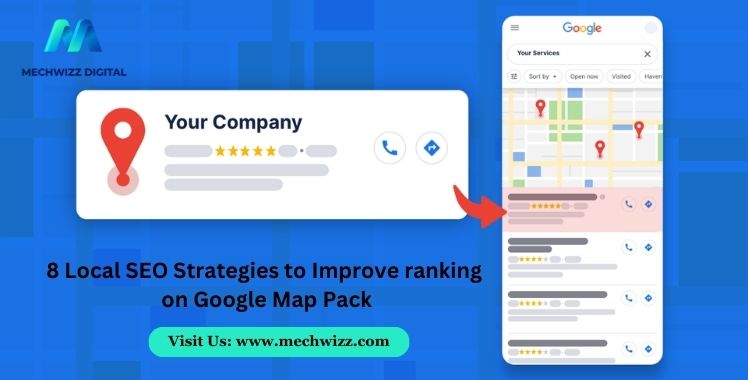
You must be familiar with search trends that are based on the popularity of specific keywords related to a particular industry. These keywords are identified through SEO keyword research. But how does keyword research work? We’ll discuss it later in the article, but let’s first understand what is meant by keyword research.
Introduction to Keyword Research
The procedure of finding and closely assessing terms and phrases that are pertinent to a particular product, company, or service sector is known as keyword research. The keywords identified through keyword research are utilized in the optimization of the content in the respective website to enhance its positioning in the search engine. Finding keywords with high search volumes, relevance to market segments, and little competition is the primary purpose of keyword research.
The common steps involved in the keyword research process are finding relevant keywords by employing keyword research tools, doing competitive keyword analysis, and finally, picking the best keyword based on the target market and audience. Keyword research can significantly aid in boosting website traffic and ultimately increase the visibility of any business.
Why do you need Keyword Research?
Keyword research and analysis are crucial since they allow businesses to understand what keywords are being used by their competitors to search for products and services offered by them. Keyword optimization can make sure that a company’s website has a good ranking on the search engine and it is among the top results on a particular search. Keyword planning can make sure that the website has high traffic and boosted sales.
Companies can also identify potential opportunities in the market by finding relevant keywords for website through keyword research. They can also find out the new services and products that they can offer and the latest target markets to focus on by doing competitive keyword analysis.
How to do Keyword Research?
An effective keyword strategy is highly crucial when you intend to keep up with the search trends. The following are some simple steps that you can follow to complete successful keyword research and reach your target:
1.Start with a Keyword idea
The initial step of the keyword research requires brainstorming to come up with basic keyword ideas. You can start by considering your target audience and thinking about questions that they might ask or searches they can potentially make. This would lead you to some autosuggestions made by the search engine.
Keyword research tools can also be used to pick the most relevant keyword based on keyword search volume. Do not forget to check on your competitors to make sure that you do not miss out on any crucial target.
2. Conduct Keyword Analysis
After getting a list of keywords, you need to do a keyword analysis to categorize them based on their value. Keyword search volume determines the search value of a keyword. Initially, focus on the long tail and mid-range volume keywords. Keywords that show no search volume on the keyword research tool must be ignored. Avoid imprecise keywords with high volumes, as they might not be promising for better ranks.
Do not forget to analyze the search intent for your keyword. SERP can help you determine whether they are informational, navigational, transactional, or commercial so that they can be utilized in the best manner possible.
3. Pick the Right keyword
After analyzing the keyword, you will have to check for the keyword competition to ensure a good ranking. Check for the keyword difficulty to determine the keyword difficulty. Find competitor keywords that have a low CPC or lower level of difficulty, as they are more achievable than highly competitive keywords that might cost higher.
Types of Keywords for SEO
At various points throughout the funnel, different types of keywords are marketed to particular audience type. This guarantees wider reach and increases the likelihood of securing a client.
On the basis of the intent, certain keywords can be inserted directly. However, it is necessary to gradually incorporate different keyword categories into a bigger category inside various subsets of keywords. Categorization of keywords allows for determining the target audience.
The following are the different types of keywords that you can consider during your SEO keyword research:
1.Query-based Keyword
Long tail keywords are a significant part of query-based keywords as they focus on the specific search intent. Keywords that start with “wh” words and end with a “?” are likely to be categorized as query-based keywords.
2. Long tail keyword
These are highly specific and less prevalent when compared to mid or short-tail keywords. The main subject or "head term" of the majority of websites and blogs. This phrase is typically used to create a detailed, lengthy keyword based on search intent. Long tail keywords offer high conversion rates because of their preciseness.
3. Location-based Keyword
As you might have understood, location-based keywords are primarily focused on specific locations. This allows localization of the content making it more relevant to the native audience.
4. Branded Keyword
Branded keywords are those special keywords that contain the name of your site, business, company, or brand. In simple words, searches with your brand name are known as branded keywords.
For a strong SEO game, you can always take professional help from an SEO company; however, beginners can also rely on the google SEO guide for an affordable service.
Keyword Match Types
On the basis of the match types, keywords can be categorized as follows:
1. Broad match
This enables a wide audience reach for the business. Broad match keywords ensure that your ad is displayed even if a portion of your keyword is used in the query. This kind of keywords has minimum relevance as they are highly vague.
2. Modified Broad match
A modifier is used in modified broad match keywords as it provides for constraints on the precise searches that will lead to ad display while still allowing the user to achieve a broad match. While modified broad match keywords are more relevant, they are not as widely reachable as broad match.
3. Phrase match
Phrase-match searches for exact matches inside the search criteria to launch an advertisement. These keywords frequently come in variations to allow for typos, synonyms, paraphrases, and more.
4. Exact match
These keywords are bid off by advertisers, and search engines like Google and Bing employ them to target specific populations with ads. Exact match keywords are highly relevant and can be used by companies to target clients who use close variations or the exact term to do a search; however, they do not offer wide reach.
5. Negative match
Negative match keywords stop your advertisement from appearing when a specific keyword is entered into the search criteria. Google might not place your ad on a page with a negative match keyword even if asked to do so. They are highly relevant to the users; however, they must be handled carefully for desired outcomes.
Top Free Keyword Research Tools
The following are some of the top keyword research tools that are available for free:
1. Google Search Console
Google search console tools are the best free tools for keyword research. Here you can search for the queries that rank the keywords to analyze and use the most suitable one.
2. Ahrefs Webmaster Tools
Ahrefs Webmaster tool can also prove to be quite efficient for your work. It is similar to Google search consoles and also helps the users identify the Keyword difficulty scores.
3. Google Keyword Planner
Another tool by Google is to keep you up in keyword competition. This tool is free to use, and you can generate keywords to improve your site's visibility.
4. Keyword Generator
This is a free keyword ideas generator tool offered by Ahref, where you can generate useful keywords for website by following just a few simple steps to maintain the potential growth and reach of your website.
5. Google trend
For a better keyword strategy, Google trend is a must-use free tool. This can help you in analyzing the popular terms in real time that you can utilize for your website.
6. Keyword Difficulty Checker
This free tool by Ahref is to understand the ranking difficulty of any keyword to make decisions accordingly.
7. Keyword Explorer's Difficulty Score
Checking the difficulty scores is quite crucial for keyword research and analysis, and this free tool by Moz serves the purpose perfectly.
In a nutshell, keyword research is highly critical for any business trying to make a place in the digital market. You can ensure professional keyword research and optimization by getting in touch with Mechwizz Digital which employs AI tool-based keyword research and provides a strong keyword strategy for your thriving business.





